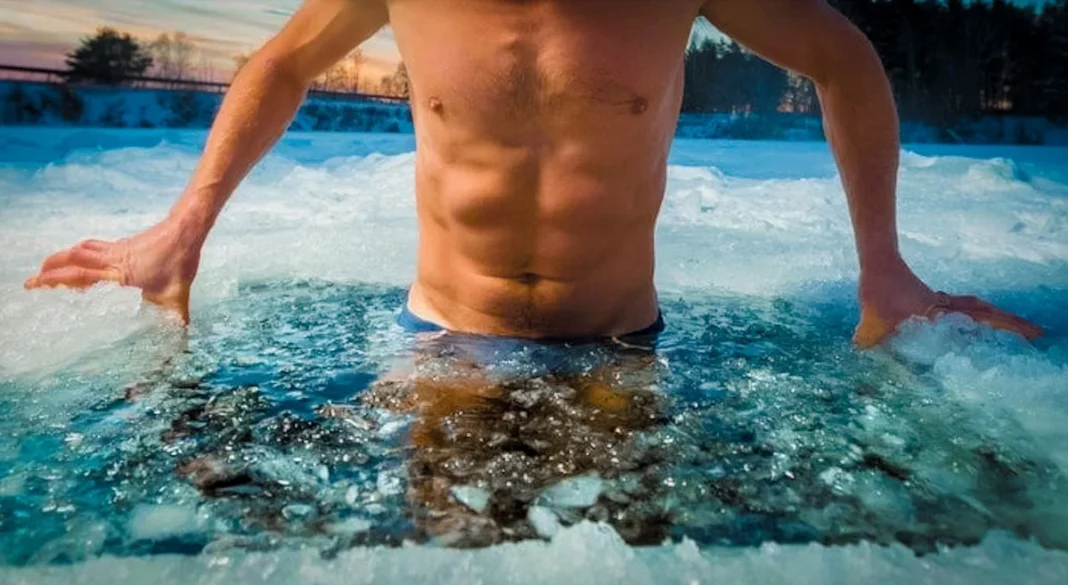Ready to cold plunge? We dive into the science to see if it’s worth it. Your body’s first reaction to a plunge in chilly water is the “cold shock” response. Your heart rate jumps. Stress hormones spike. You gasp suddenly and may hyperventilate. Your reward if you stay in long enough to endure these initial excruciating moments? You start to shiver. To the uninitiated, it may not be obvious why the practice of cold plunging has attracted a huge following in recent years.
But those who’ve embraced the cold water craze — be that in a frigid lake, the ocean, or an ice bath in their backyard — frequently describe powerful, even transformative effects on their state of mind and sense of wellbeing. Is there more to it than just a trend? Let’s explore the potential health benefits of cold plunging and what science has to say.
Health Claims and the Science Behind Them:
- Regulating Blood Sugar:
- Cold exposure has been found to improve insulin sensitivity, helping manage blood sugar levels.
- Shivering during cold exposure activates muscles similarly to exercise.
- Some improvements in insulin sensitivity may surpass those seen with exercise.
- Cold water swimming studies differ from cold air exposure, making it hard to draw direct conclusions.
- Boosting the Immune System:
- Cold plunging may help the immune system, but evidence remains unclear.
- Changes in white blood cells suggest improved immune response.
- Mixed results from studies on respiratory infections and self-reporting.
- Duration and temperature of cold exposure may impact outcomes.
- Reducing Chronic Inflammation:
- Cold water may dampen chronic inflammation associated with various diseases.
- Some studies show the release of anti-inflammatory markers during cold exposure.
- Challenges in studying chronic inflammation due to small sample sizes.
- Wim Hof’s regimen may have anti-inflammatory effects, but causality is unclear.
- Alleviating Anxiety and Depression:
- Many cold water enthusiasts report improved mental health and mood.
- Qualitative data and small studies suggest promise in this area.
- A large randomized controlled trial planned to investigate cold water swimming’s therapeutic potential.
- Even brief cold water sessions have been shown to elevate mood.
- Managing Stress Response:
- Cold water immersion can help train the autonomic nervous system.
- Reducing the activation of the sympathetic nervous system over time.
- Submerging the head in cold water can stimulate the parasympathetic branch.
- Potential for cross-adaptation to stress in daily life.
- Workout Recovery:
- Cold baths reduce soreness after exercise, but may not be suitable for muscle growth.
- Endurance exercise may benefit more from cold plunging.
- Cold water may decrease muscle-building processes after resistance training.
- Brown Fat Superpowers:
- Brown fat can increase glucose and fatty acid consumption to generate heat.
- Brown fat is not the sole factor responsible for improved glucose and insulin sensitivity.
- Humans cannot indefinitely increase brown fat through cold exposure.
The science surrounding the health benefits of cold plunging is evolving, and while there is promise in various areas, more research is needed to establish definitive conclusions. Cold exposure may offer advantages in insulin sensitivity, immune function, inflammation reduction, mood enhancement, stress management, and workout recovery. However, it is essential to approach cold plunging cautiously, as individual responses vary, and there are potential risks associated with excessive or improper cold exposure.
Ultimately, the decision to embrace cold plunging should be based on personal preferences and goals, with a mindful consideration of one’s own health and comfort levels.
Cold plunging, also known as cold water immersion or ice bathing, is a practice that involves immersing your body in cold water, typically with temperatures ranging from around 60 degrees Fahrenheit (15 degrees Celsius) to much colder. It can take place in natural bodies of water like lakes or oceans, or in specially designed cold plunge tubs or baths. Cold plunging is often done for various health and wellness benefits, as well as for the unique experience and invigorating sensation it provides.
Is cold plunging actually beneficial?
Cold plunging has gained popularity due to anecdotal reports of various potential benefits, but the scientific evidence is still evolving, and more research is needed to establish its true effectiveness. Some of the potential benefits associated with cold plunging include:
Improved Insulin Sensitivity: Cold exposure may improve insulin sensitivity, which helps manage blood sugar levels.
Enhanced Immune Function: Some studies suggest that cold water immersion could boost the immune system, potentially making you less susceptible to infections.
Reduction in Chronic Inflammation: Cold water might help reduce chronic inflammation, which is linked to various diseases.
Mood Enhancement: Many individuals report improved mental health, reduced anxiety, and enhanced mood after cold plunging.
Stress Management: Cold water immersion can train the autonomic nervous system, potentially helping individuals better handle stress.
Workout Recovery: Cold baths may reduce muscle soreness after exercise, particularly in endurance athletes.
Activation of Brown Fat: Brown fat is a type of fat that generates heat when exposed to cold, potentially aiding in weight management and metabolic health.
What does cold plunging do for your body?
Cold plunging primarily affects your body’s physiological responses to cold exposure. When you immerse yourself in cold water, your body goes through several stages, including the initial cold shock response, increased heart rate, and the release of stress hormones. Over time, your body adapts to the cold, and you may experience a feeling of calm and improved mood.
The specific effects of cold plunging on your body can vary from person to person, but it may include:
Improved insulin sensitivity, potentially aiding in blood sugar management.
Changes in white blood cell counts, which may enhance immune function.
Potential reduction in chronic inflammation.
Enhanced mood and reduced symptoms of anxiety and depression.
A better ability to manage stress in daily life.
Reduced muscle soreness and improved workout recovery, especially for endurance athletes.
How long should I cold plunge for?
The optimal duration for cold plunging can vary based on individual tolerance and goals. However, it’s generally recommended to start with shorter sessions, especially if you’re new to cold exposure, and gradually increase the duration as your body adapts.
Here are some guidelines for cold plunging durations:
Beginners: Start with short sessions of 1-2 minutes and gradually extend the time as you become more comfortable.
Intermediate: Aim for sessions of 5-10 minutes once you’ve built up tolerance.
Advanced: Some individuals may tolerate longer sessions, but excessive cold exposure is not necessarily more beneficial.
It’s crucial to listen to your body and pay attention to signs of discomfort or overexposure. Staying calm during the initial moments of cold exposure is often considered more critical than the total duration. Always prioritize safety and consult with a healthcare professional if you have any underlying medical conditions or concerns before engaging in cold plunging.











